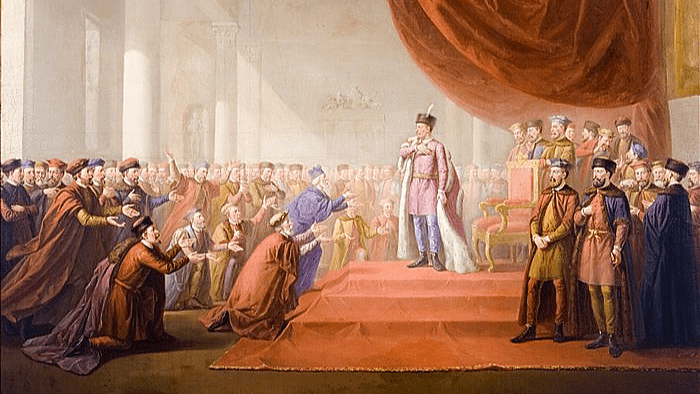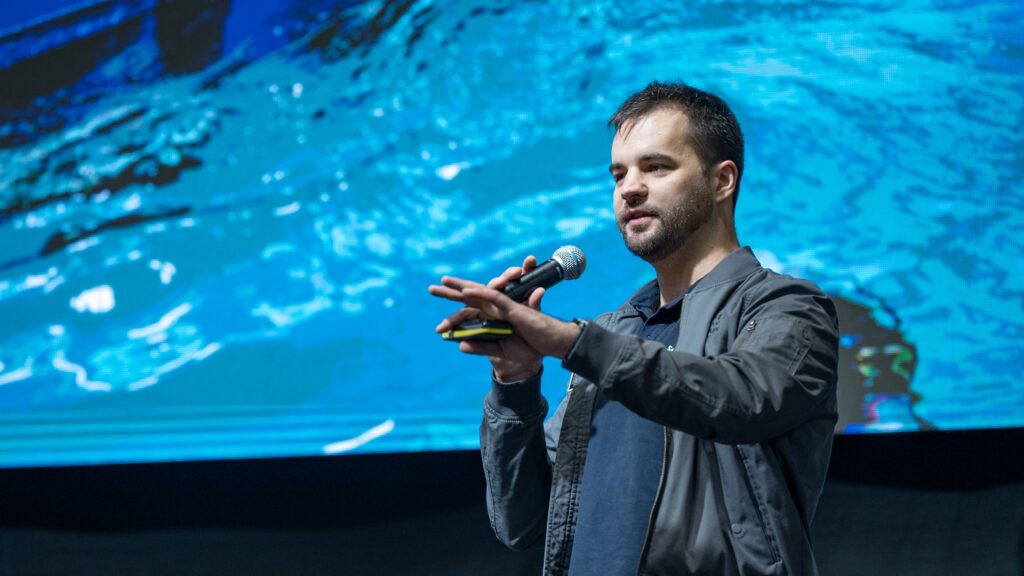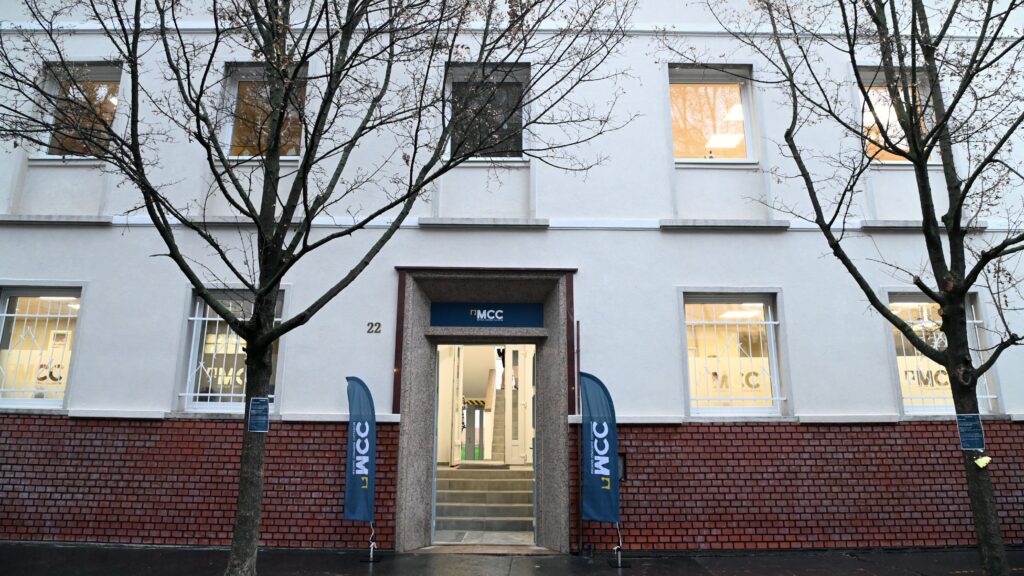István Báthory, Duke of Transylvania, King of Poland, and Grand Duke of Lithuania, led an adventurous life and was highly revered across Europe, especially by the Lithuanian nation. During my recent travels in the Baltic region, while exploring the beautiful baroque streets of Vilnius, I came across a sign commemorating István Báthory. Recognizing his name piqued my curiosity, prompting me to delve deeper into his history and his significant role in Lithuania. Here, I will briefly summarize my findings.
István Báthory (1533–1586) played a pivotal role in the history of Lithuania. His notable achievements include strengthening the Lithuanian state, enhancing its judicial system, and bolstering its military power. During his ten-year reign, he introduced numerous innovations.
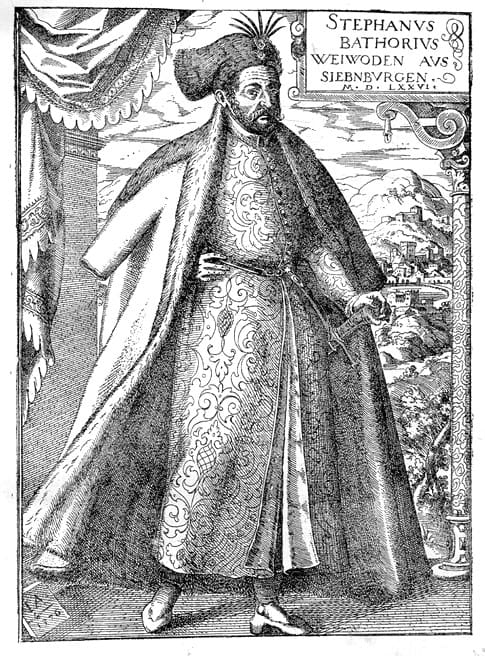
History
Báthory became the ruler of the Polish–Lithuanian Commonwealth during a period of intense factionalism. On 12 December 1575, one faction of the electoral parliament, primarily representatives from the Grand Duchy of Lithuania (GDL) and Prussia, nominated Emperor Maximilian II of the Holy Roman Empire. However, on 14 December 1575, another faction, mainly Polish representatives, proposed Báthory, following his marriage to Anna Jagiellon, the sister of the late Grand Duke of Lithuania, Sigismund II Augustus. After extensive negotiations,
on 29 June 1576, the GDL representatives proclaimed István Báthory as Grand Duke.
They agreed that the Commonwealth would be a federation of Poland and the GDL, two states of equal status and independence, which alleviated Lithuanian concerns about Polish dominance.
Báthory’s election without Lithuanian participation initially caused tension, but once Lithuanian rights were recognized, they accepted him as their ruler. His political ambitions were broad, aiming to unify Western European powers against common enemies such as the Turks and the Habsburgs. However, he first sought to curb the growing power of Moscow. Despite being a strict ruler, he respected the rights of both Poles and Lithuanians. Interestingly, he communicated in Latin, as he did spoke nor Polish nor Lithuanian.
Domestic Policies
Báthory was a Catholic who allowed Protestantism to develop in Lithuania, famously stating, ‘I am the king of men, not of consciences.’ He promoted religious tolerance, allowing everyone to spread their faith through teaching and example rather than violence. To manage the increasing number of litigation among Lithuanian nobles, he established the Supreme Tribunal of Lithuania on 1 March 1581. This Tribunal, consisting of 40 judges elected by the nobility, alternated between Vilnius, Trakai, Naugarduk, and Minsk, thereby increasing the nobility’s influence.
Báthory also supported the Catholic Church’s centralization, which aligned with his own centralizing ambitions. He reorganized the Jesuit College in Vilnius into an academy and university, establishing other Jesuit colleges in Polotsk (1580), Riga (1582), and Tartu (1584). The Vilnius University initially had faculties of philosophy and theology, with most professors being foreigners teaching in Latin. However, they also taught in local languages to ensure priests and theologians could communicate religious matters in the native tongues. By 1586, the student population had grown to 700, reaching 900 a decade later. Even though the Lithuanian language was neglected, it encouraged Lithuanian writing and generally raised the level of education in the region,
making the university of Vilnius a cultural centre in Eastern Europe.
Science and culture spread from Lithuania to the lands of the Eastern Slavs, even to Moscow, which was under Byzantine influence. Vilnius, as a trade centre, attracted not only neighbouring merchants but also Hungarians, Romanians, Tatars, and Armenians.
In regulating relations between the GDL and Poland, Báthory often made compromises. In 1582, he appointed the Lithuanian Bishop of Vilnius, Jurgis Radvila, as deputy of the Duchy of Transdanubia in Riga with mostly Poles as commandants of castles. He also established a Catholic diocese in Cēsis, and returned many churches in the region to Catholics.
For the benefit of the state, he took away the former Livonian Order and archepiscopal domains from private individuals. To be independent of the nobility (he had to ask them for money every time he went to war), he strengthened the army of the Republic of the Two Nations by abandoning conscription and recruiting soldiers (Germans, Hungarian hussars). At the same time, he got the Polish and Lords of Poland to pass resolutions to levy war taxes.
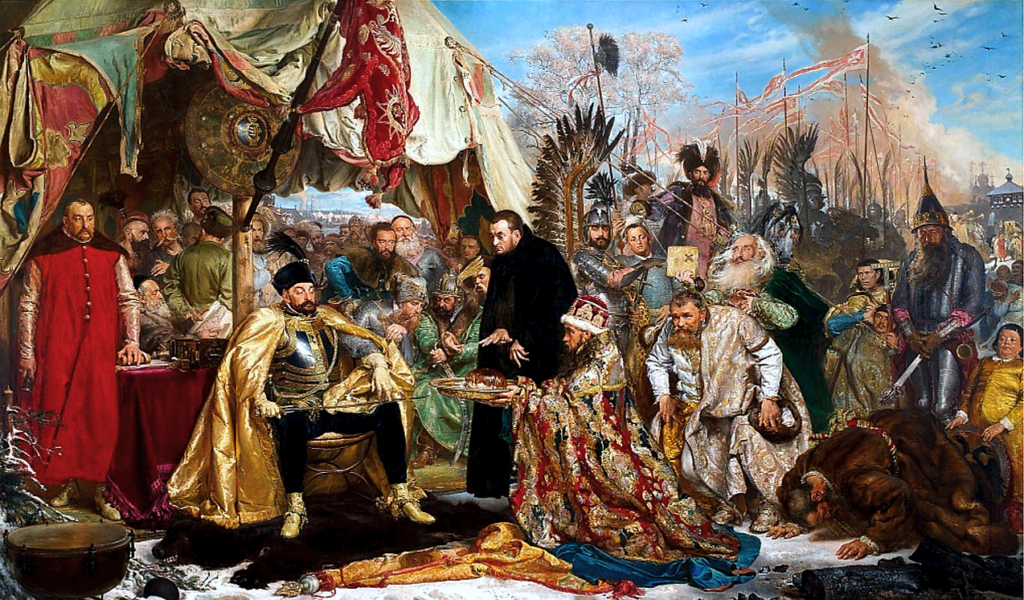
Foreign Policy
In foreign policy, Báthory focused on annexing Livonia to the Commonwealth and preparing to liberate Hungary from Turkish rule. During the Livonian War (1558–1583), he mobilized Polish forces for decisive battles against Russia. He aimed to make Russia a vassal of the Commonwealth and sought alliances with the Crimean Tatars and the Dnieper Cossacks. Between 1579 and 1581, he led successful campaigns against Russia, capturing key territories.
Under the 1582 Zapolsky Yam truce, Russia renounced its claim to Transdanubia for ten years in favour of the Republic of the Two Nations, which in turn renounced its claim to the Russian lands it had occupied in 1580.
Báthory was preparing for a new war with Russia, but death intervened.
He died in Grodno on 12 December 1586 while preparing for war with Moscow and without having fulfilled his grand plans. After his death, he was subjected to the first described and published autopsy, carried out by the physicians Simon Simonius and Nikolas Bucela.
István Báthory’s legacy is marked by his efforts to strengthen the Lithuanian state, promote education, and foster religious tolerance, making him a significant figure in the history of Eastern Europe.

